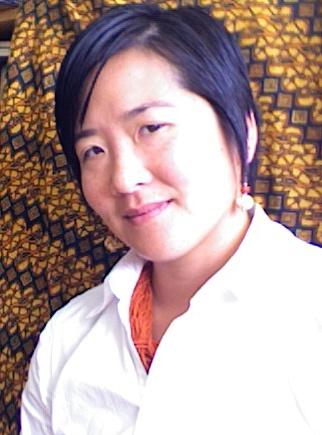December 9, 2009
It’s Copenhagen or bust for two Copeland fellows this week. Chris Cuomo and Diana Pei Wu packed their bags and headed north to take part in the much-anticipated UN Climate Conference (COP15) in Denmark. Cuomo will participate with a delegation focused on the ethical dimensions of climate change, while Wu is affiliated with a delegation of grassroots community organizations pushing for “climate justice,” a movement aimed at eliminating unequal burdens that indigenous, low-income and other disadvantaged peoples suffer because of climate change.
 Diana Pei Wu
|
For Wu, who studies social movements—in particular, campaigns for environmental justice—it was a dream come true to attend COP 15.
“I will be documentarian of my delegation,” she told Public Affairs’ Caroline Hanna of her role at the conference. “I’m doing a lot of media contact work, as well as translation. In addition, I’m working on compiling the best research possible and bringing it to people of color and front-line communities that are coming from the U.S.”
She spoke with Hanna recently about COP 15 and offered her thoughts on its importance, what she hoped it would accomplish and her personal goals.
What is significant about this gathering, given that any kind of legally binding climate treaty is now off the table?
After the Kyoto protocol was adopted in December 1997, a lot of countries recognized that there we all have common but differentiated responsibilities around climate change. Certainly during the last 10, 20 years, there’s been near international scientific and political consensus about the realities of climate change, the melting of the polar ice caps, the rising of the sea level and increasing occurrences of severe weather events such as typhoons and hurricanes. We know that this is happening, and now we just have to figure out what to do about all of this.
I think in [the UN climate change conference in] Bali in 2007 people finally agreed and negotiated around where the bottom line is, what to do in Copenhagen. They said, ‘We’re going to try and set targets for emissions. The world is coming together in solidarity about this.’ So the hope is that there will be some international agreement on some points.
What will U.S. delegations and the administration take from this meeting?
We would love our government to agree to a significant and meaningful pact. The global and scientific consensus is that we need a 20 percent reduction in carbon emissions from 1990 levels. The current administration’s proposal is a 4-percent reduction from 1990 levels. We need something much more significant than what is being currently being proposed.
Beyond the environmental aspects of this conference, what’s great is that there are a lot of different people from the United States going. Various companies, conservative and liberal politicians, both the Congressional Black and Hispanic Caucuses—all these very different groups are going to be there. President Obama will be there on the last day. This is unprecedented. It’s the first time that the U.S. is actually participating in a substantial way in these negotiations.
Clearly there are corporate interests that are going to the talks, but there are also many other groups representing the people who can’t be at the negotiating table. Copenhagen is the first time in many ways that people’s movements and environmental movements are able to be on the inside of these talks in a substantial way.
What do you hope to accomplish personally at Copenhagen?
It turns out that a lot of people I’ve worked with in the past—in places like Malaysia, Mexico, South America and the small island nations—are [in Copenhagen] now. I’m looking forward to reconnecting with these folks and thinking about bringing them into my classroom virtually. I may have them give lectures through the Web site and have them talk about who they are and what they do.
What in your mind is the most important thing being discussed at the meeting?
One of the most important is the whole REDD [Reduce Emissions from Deforestation and Degradation in developing countries] agreement. In the past, indigenous peoples’ rights have not been recognized under treaty obligations. They need to be recognized, though, when it comes to climate change because any implementation mechanism is really going to affect those people who live off the land—indigenous people, peasants, etc. Those are the most impacted communities when it comes to climate change legislation.
What do you think will be accomplished?
The current predictions about what will happen is that some language regarding climate change will be negotiated but it will not be a firm outcome. What is being negotiated is going to set us down the path to [another climate change meeting likely to take place in] Mexico City in 2010. That is the goal and the hope—that we’ll have a clear road map between here and Mexico City, and strengthened international solidarity and agreement for that road.
What is most exciting to you about this conference?
This is the first time there’s a real delegation of grassroots community organizations combining the concerns of racial and social justice with climate change. It’s a really wonderful time to be working with a delegation and being a part of the talks. The fact that everyone is getting involved and supporting the long-term, mainstream environmental actors but bringing this new analysis and constituencies into social movements at the international level is really exciting. To be able to document or think theoretically about what that means for global governance—that’s very thrilling for me.
For more information or to arrange an interview, contact Caroline Hanna, 413-542-8417 or channa@amherst.edu.